Search
Did you mean: Greek Fire?
Search Results
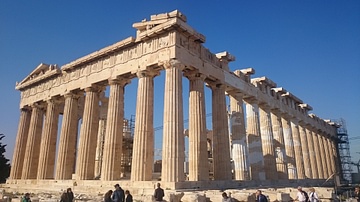
Article
Greek World Heritage Sites
Greece, the 'cradle of western civilization', is home to a large number of spectacular sites from the ancient world, several of which have been placed on the UNESCO World Heritage List. These sites of great historical importance, interest...
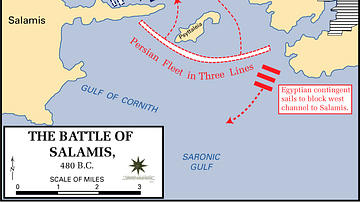
Article
The Greek Strategy at the Battle of Salamis 480 BCE
The history of the second Persian war as presented in most of the modern literature is solely based on Herodotus' Histories. However, Herodotus' narration seems to contain several unrealistic elements which raise doubts about the actual strategy...
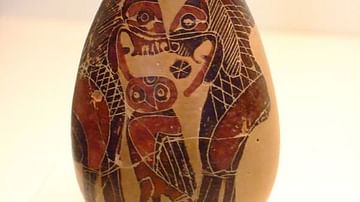
Article
A Visual Glossary of Greek Pottery
Alabastron (pl. alabastra) - a small jar for storing perfumes, named after the material (alabaster) the first examples were made from. They were often carried by a string looped around the neck of the vessel. Amphora (pl. amphorae) - one...
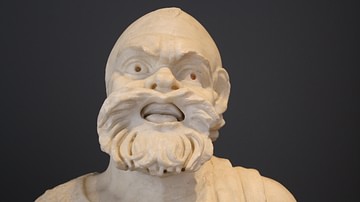
Collection
Comedy & Tragedy: the Drama of Greek Theatre
Greek theatre likely sprang from the lyrical performance of ancient epic poetry and the rituals performed in the worship of the god Dionysos where goats were sacrificed and participants wore masks. From the 6th century BCE, Greek tragedy...
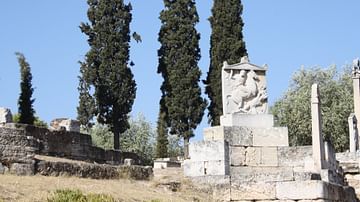
Article
The Dexileos Stele: A Study of Aristocracy and Democracy in Greek Art
The Dexileos Stele assesses the way that Athenian political thought penetrated all levels of society, showing the conflict that the aristocratic classes were faced with in trying to find their place within the Athenian Democracy. As a visual...
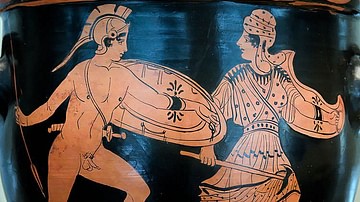
Article
A Visual Who's Who of Greek Mythology
Achilles The hero of the Trojan War, leader of the Myrmidons, slayer of Hector and Greece's greatest warrior, who sadly came unstuck when Paris sent a flying arrow guided by Apollo, which caught him in his only weak spot, his heel. Adonis...
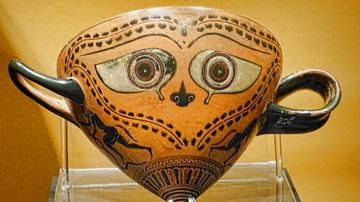
Article
Greek Vase Painters & Potters
We know the names of some potters and painters of Greek vases because they signed their work. Generally a painter signed his name followed by some form of the verb 'painted', while a potter (or perhaps the painter writing for him) signed...
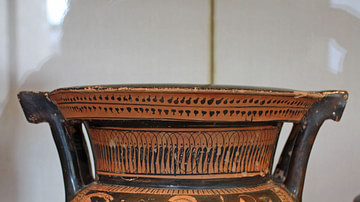
Article
Greek vases: names, shapes and functions
The system of names used today for Greek vases has quite rightly been described by one leading scholar as 'chaotic'. Many of the names were first applied in the eighteenth and nineteenth centuries by scholars who tried to fit the names of...

Image Gallery
Gallery of Greek Temples
The architects of the ancient Greek world believed that temples should not just fulfil their purpose of housing a statue of a god or goddess but that they should be admired from both close-up and from afar. Consequently, a great deal of effort...
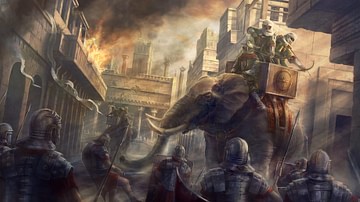
Article
Elephants in Greek & Roman Warfare
In the search for ever more impressive and lethal weapons to shock the enemy and bring total victory the armies of ancient Greece, Carthage, and even sometimes Rome turned to the elephant. Huge, exotic, and frightening the life out of an...